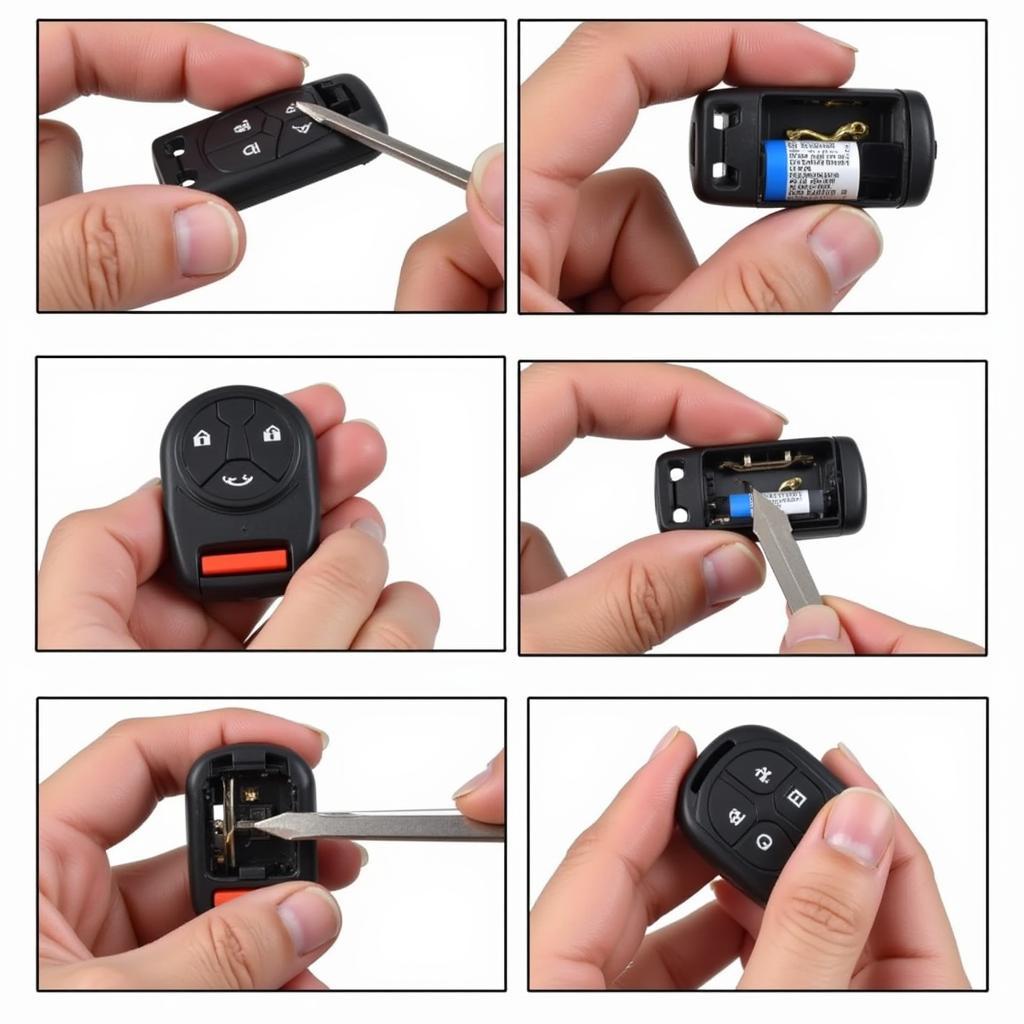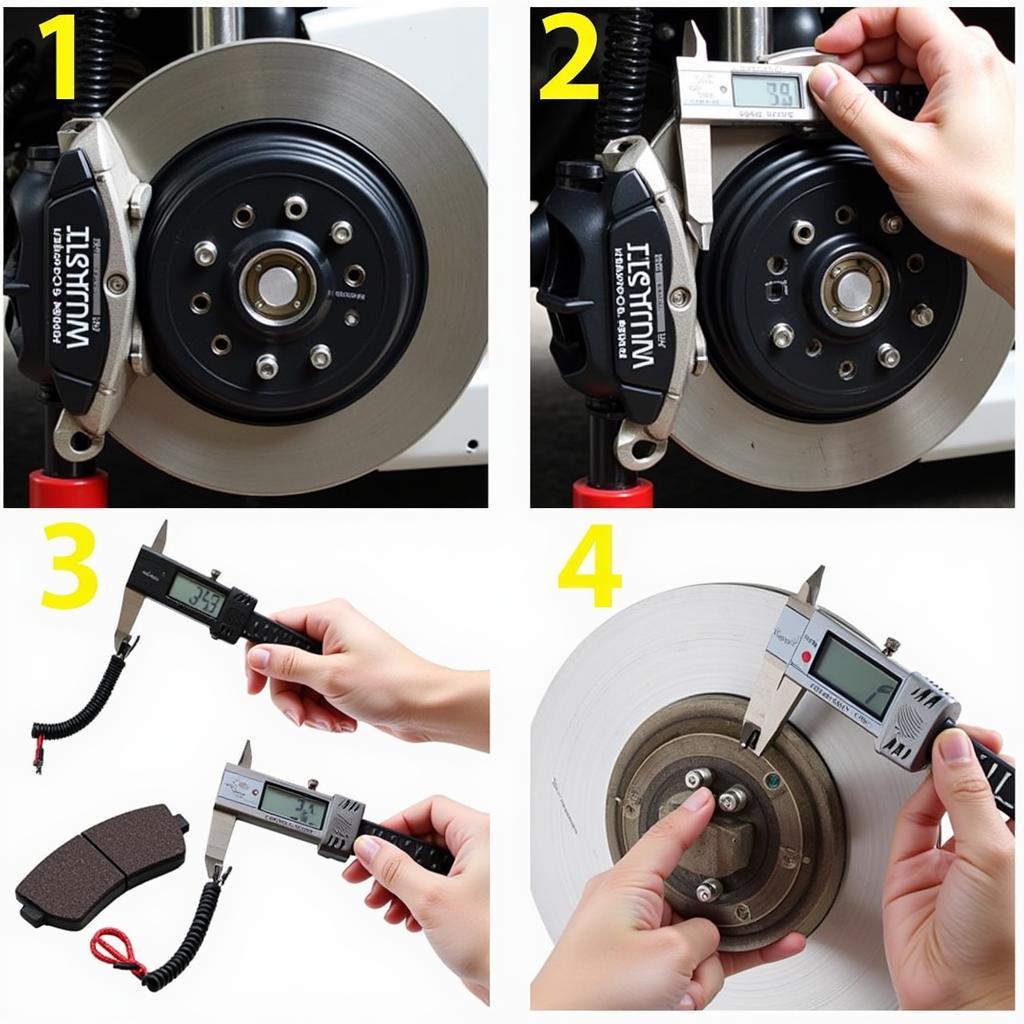“My car battery keeps dying.” Sound familiar? This is a common complaint we hear from vehicle owners, and it can be incredibly frustrating. There are many reasons why a car battery might die frequently, ranging from simple fixes to more complex electrical issues. This comprehensive guide will walk you through the most common causes, how to diagnose the problem yourself, and the steps to get you back on the road quickly.
Why Does My Car Battery Keep Dying?
Before we dive into solutions, it’s crucial to understand why your car battery might be draining quickly. Here are the most common culprits:
1. Leaving Electronics On
This might seem obvious, but accidentally leaving your headlights, interior lights, or other electronics on is a surefire way to drain your battery, especially overnight. Modern cars have more power-hungry devices than ever, so even a seemingly small drain can have a significant impact over time.
2. Old or Failing Battery
Car batteries don’t last forever. The average lifespan of a car battery is around 3-5 years. As your battery ages, its ability to hold a charge diminishes, eventually leading to frequent dying.
3. Bad Alternator
Your car’s alternator charges the battery while the engine is running. If the alternator is faulty, it won’t charge the battery properly, leading to a dead battery.
4. Parasitic Draw
Even when your car is off, certain components draw a small amount of power, known as parasitic draw. While this is normal, a significant parasitic draw from a faulty component, like a malfunctioning glove box light or a faulty radio, can drain your battery over time.
5. Corroded Battery Terminals
Battery terminals and cables corrode over time, especially in areas with extreme temperatures. Corrosion acts as an insulator, preventing the battery from receiving a proper charge from the alternator and delivering power to the starter.
6. Extreme Temperatures
Both extreme heat and cold can affect your battery’s performance. Heat can accelerate the internal discharge of the battery, while cold temperatures can reduce its capacity to hold a charge.
7. Short Trips and Frequent Starts
If you primarily drive short distances, your alternator may not have enough time to fully recharge the battery after starting the engine. This is especially true if you make frequent stops, further draining the battery with each restart.
How to Diagnose a Car Battery Problem
Now that you have an idea of the potential causes, here’s a step-by-step guide to help you diagnose the problem:
- Check Your Lights and Accessories: Before doing anything else, make sure all lights and accessories are turned off completely.
- Inspect the Battery: Visually examine the battery for any signs of damage, cracks, or leaks. Check the battery terminals for corrosion.
- Jumpstart Your Car: If possible, jumpstart your car. If it starts, this indicates a problem with the battery or charging system.
- Test the Battery Voltage: Use a multimeter to test the battery voltage. A fully charged battery should read around 12.6 volts.
- Test the Alternator: With the engine running, use a multimeter to test the voltage at the battery terminals. A reading between 13.5 and 14.5 volts indicates a properly functioning alternator.
How to Fix a Car Battery That Dies Fast
The solution to your car battery problem depends on the diagnosed cause. Here are some common fixes:
- Clean Corroded Battery Terminals: Disconnect the battery cables, negative cable first, and clean the terminals with a baking soda and water solution.
- Replace an Old or Failing Battery: If your battery is nearing the end of its lifespan or testing poorly, it’s time for a replacement.
- Replace a Faulty Alternator: A professional mechanic can diagnose and replace a faulty alternator.
- Address Parasitic Draw: Identifying the source of a parasitic draw can be tricky. A qualified mechanic can use specialized equipment to pinpoint and address the issue.
- Limit Short Trips: Whenever possible, combine short trips or allow your car to run for a longer duration to allow the alternator to fully charge the battery.
When to Consult a Professional Mechanic
While some battery issues are simple to fix, it’s essential to recognize when professional help is necessary. If you are uncomfortable working with car batteries or suspect a more complex issue, don’t hesitate to contact a qualified mechanic.
Tips to Prevent Future Car Battery Problems
- Regularly Inspect Your Battery: Make it a habit to visually inspect your battery for signs of corrosion, damage, or loose connections.
- Clean Your Battery Terminals: Clean your battery terminals every few months to prevent corrosion buildup.
- Turn Off All Electronics: Double-check that all lights, accessories, and electronics are off before leaving your car.
- Drive Your Car Regularly: Regular driving, even short distances, is better than letting your car sit idle for extended periods.
- Keep Your Battery Charged: If you know you’ll be storing your car for a while, use a trickle charger to keep the battery topped up.
Conclusion
Dealing with a car battery that dies fast can be a frustrating experience. However, understanding the common causes and following the troubleshooting steps outlined in this guide can help you resolve the issue and prevent future occurrences. Remember, regular maintenance and timely attention to your car’s electrical system are key to avoiding the inconvenience of a dead battery.


